Sarawak targets role as key producer and exporter of green hydrogen
State capital Kuching is set to become the first in Southeast Asia to use hydrogen to power its urban transport system.
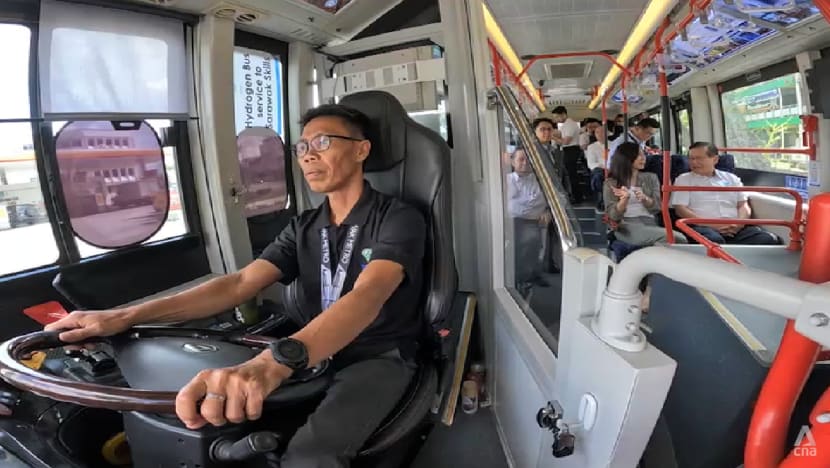
State capital Kuching is set to become the first in Southeast Asia to use hydrogen to power its urban transport system, including hydrogen-powered autonomous rapid transit (ART) vehicles and buses.

This audio is generated by an AI tool.
KUCHING: The East Malaysian state of Sarawak, which is rich in natural resources, is looking to become a major exporter of green energy.
It is leading the country’s push towards a low-carbon economy by tapping the state's abundance of hydropower to produce green hydrogen.
Sarawak’s journey into hydrogen as a renewable energy began in 2019, with the launch of the first integrated hydrogen production plant in Southeast Asia.
With ample water supply and affordable hydropower, the state is well positioned to boost hydrogen exports, said observers.
HYDROGEN TO PLAY SIGNIFICANT ROLE IN FUTURE
Sarawak's Premier Abang Johari Openg believes hydrogen energy will play a significant role in the future of mobility, as new technology brings down the cost of production.
“When I started a pilot project here to produce hydrogen, the power that is needed is 60kWh to produce 1kg of hydrogen. Now, it has come down to 38kWh. And recently, I read in a journal that there is a further reduction to 15kWh.”
Sarawak, with its many rivers, has massive potential to generate 20GW of hydropower, he noted.
“What we are doing now as we look at this potential of having cascading dams besides basic dams that are available,” said Mr Abang Johari.
“By the year 2030, we may be able to produce more than 10GW."
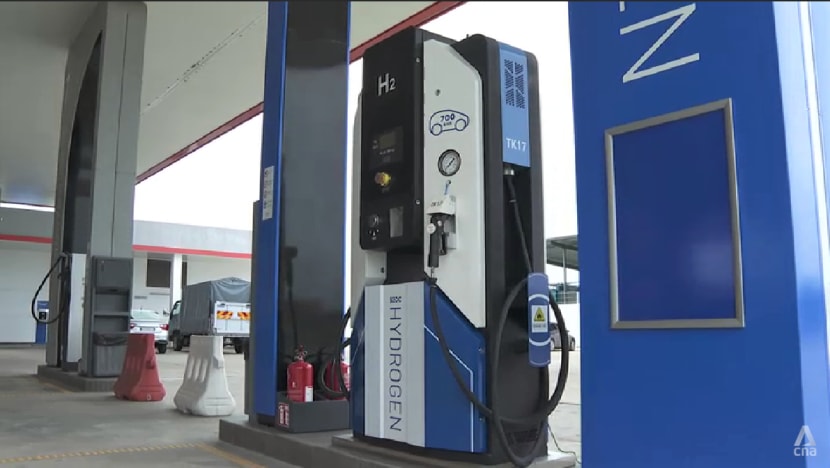
The state has recently signed agreements with Japanese and South Korean companies to develop two hydrogen production projects, with a combined capacity of more than 200,000 tonnes per year, in the coastal town of Bintulu.
The two major projects are expected to be operational in 2027. Some 9,000 tonnes of green hydrogen produced per year will be for domestic use while the rest will be exported.
Domestically, Sarawak is also actively developing its own hydrogen production plant and refuelling station to support its urban transport system.
State-owned oil and gas company Petroleum Sarawak Berhad (PETROS) launched its first multi-fuel station in Sarawak last year, offering drivers several refuelling options including a hydrogen dispenser and electric charging, in addition to the usual petrol and diesel pumps.
The company aims to have six such stations in the state by next year and targets 100 by 2030.
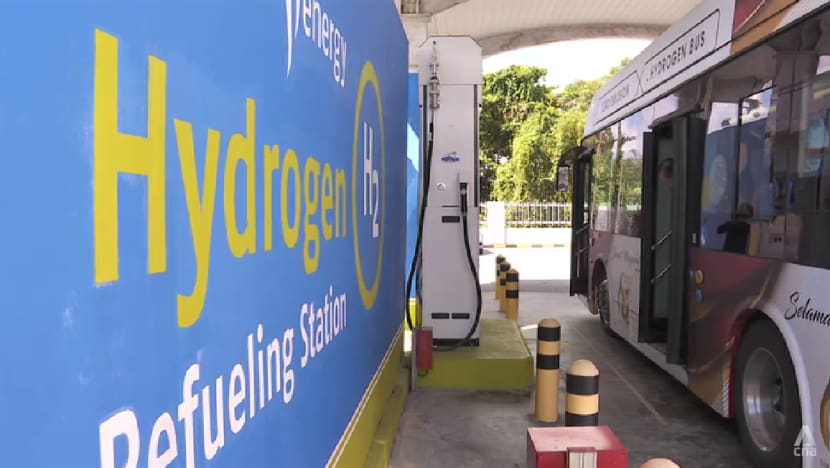
DOES USING HYDROGEN MAKE ECONOMIC SENSE?
Hydrogen is expensive and so far, only the government fleet and several hydrogen powered buses are using it.
Sarawak’s opposition lawmaker Violet Yong is concerned about the viability and long-term sustainability of the hydrogen projects.
She said: “For me as a Sarawakian, I'm more concerned about the spending, whether the billions of dollars that we spend on every project that the premier announced is sustainable, how long can we sustain and whether now is the right time for us to move into adopting hydrogen, which I think is still not that developed yet.”
However, Mr Abang Johari is determined to prove his critics wrong.
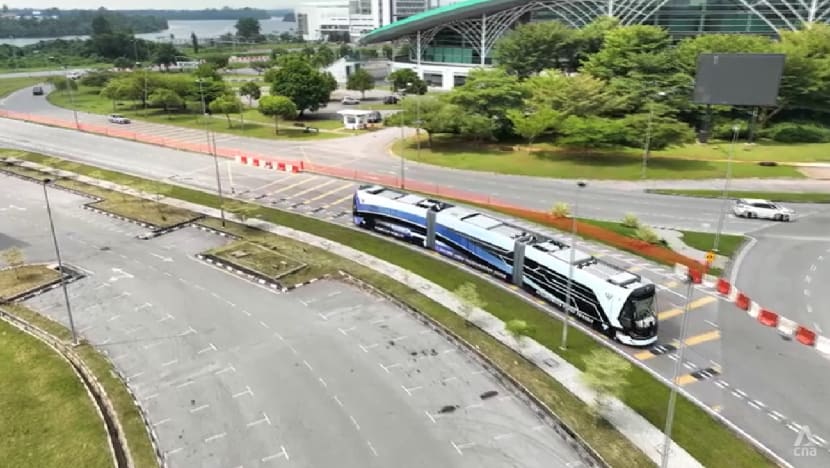
“It is meant for the people. We have been acknowledged as a high-income state already by the World Bank based on the gross national income (GNI) per capita,” he said.
“I have to translate that into the household income, to get the rural people to (have better incomes).”
He believes renewable energy is a catalyst to do so by generating income for the state and creating high paying jobs for locals.
So far, Sarawak has spent about US$1 billion on investments in hydrogen development, which the state government hopes will pay off in the near future.
FIRST IN REGION TO POWER PUBLIC TRANSPORT WITH HYDROGEN
In line with Sarawak’s ambition to develop a hydrogen economy, the state capital of Kuching is set to become the first in Southeast Asia to use hydrogen to power its urban transport system, including hydrogen-powered autonomous rapid transit (ART) vehicles and buses.
ART will form the backbone of Kuching’s urban transport system, to encourage public usage and ease traffic congestion.
Covering a distance of 70km with three lines, the first phase will begin passenger service in stages starting from the fourth quarter of 2025.
“The future of fuel that will mitigate the emission of carbon is hydrogen,” said Mr Abang Johari.
“If you still use a battery with lithium, depending on the lifespan, it is still not friendly to the environment.”
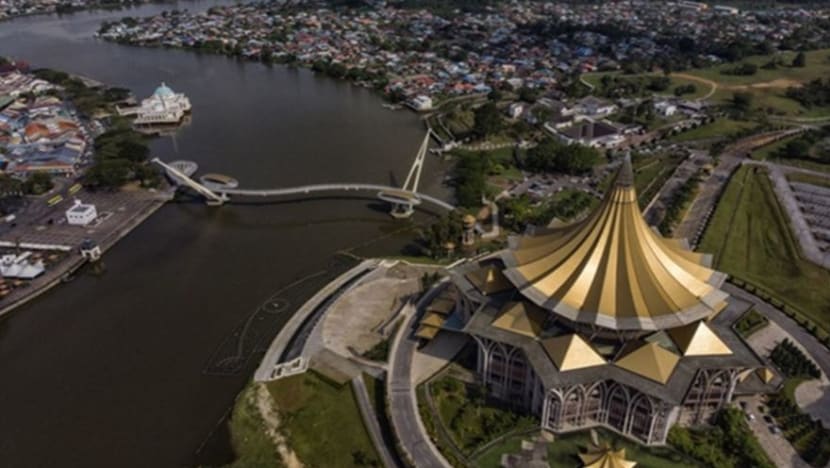
A prototype of the autonomous rapid system has been on trial at Isthmus, a green industrial zone located just outside Kuching.
For the past few months since August, Sarawak Metro, which has been tasked to develop the urban transport network, has been collecting technical data on the vehicle movement guidance and hydrogen fuel cell propulsion system.
Besides the ART, three hydrogen buses have also been on trial runs in the heart of the capital since 2020, and more than 18,000 passengers have gone on them.
Sarawak state Transport Minister Lee Kim Shin said: “Our three hydrogen buses, according to the manufacturer, are the first outside of China in a tropical climate doing these trial runs.”
These buses can run for about 250km on a single refill, he added. “For electric vehicles (EVs), the problem with the batteries is that after five years or so, the battery life is out. How do you dispose of the lithium batteries? It also becomes an environmental hazard.”
The refuelling for hydrogen, he noted, is much faster than charging a battery.
Although there is no retail price quoted right now for hydrogen, it is expected to be less than US$10 per kg.
HOW FEASIBLE IS A HYDROGEN-POWERED TRANSPORT SYSTEM
The state has ordered 38 sets of rolling stock and 55 feeder buses from Chinese companies. The first set is arriving in July next year.
While Sarawak has undergone heritage, social and environmental impact studies, opposition lawmakers questioned how feasible a hydrogen-powered transport system is.
Ms Yong said: “Our premier is trying to show to the people that they are very determined in going into this hydrogen-powered ART project. By doing this dedicated lane to let the ART drive on, but how effective or how practical is that in (solving) the traffic jam problem, I really don't know.”
But the green public transport system is getting youths in Sarawak excited.
“We usually just drive but I am looking forward to having this ART vehicle on the road,” said one resident.
Another resident said: “I think in the future, we do need a lot of these kinds of transportation systems to keep it sustainable.”
Sarawak’s transition to green energy is not just limited to land. It is also trying to produce sustainable aviation fuel from algae and green methanol to power its shipping industry.
Mr Abang Johari hopes that hydrogen technology will capture the imagination of the younger generation, adding that talent development needs to be enhanced.
Plans are underway to provide free tertiary education for Sarawakians, equipping students with the right skillsets to power the green economy.


















